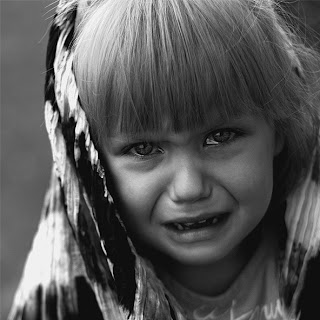Most
of us, if we were truly honest, would have to admit that most days, we want to
be known as someone other than who we truly are. We all have our glory moments
and our ugly ones…and we’d prefer not to be remembered for the latter.
I
was at the library a week ago, pretending to do homework and actually studying
people over the top of my computer. One interaction in particular caught my
attention and made me wince…and then made me think.
There
was a beautiful young lady with lively brown eyes and bouncy brown hair who was
in the library on this particular day—and her vivacious personality was oozing
out of her along with her warm heart as she flitted from one friend to the
next, reveling in the experience of life with them. She probably wasn’t aware
of her volume or of the fact that some adults find it difficult to appreciate
the vivacity and the joyful exuberance of youth in the context of the library
setting.
Thus,
the poor little maiden was taken rather off-guard when one of the elderly
female librarians approached her indignantly, and proceeded—with cutting words
and an angry tone of voice—to demean the child and publicly embarrass her while
demanding that she be quiet in the library.
I
winced as I listened, remembering silently what it used to feel like to be that
little girl. As the little lady marched past me a moment later with her chin
stuck defiantly in the air to hide the fact that her little heart was bleeding,
I noticed the tears welling up in the corners of her flashing brown eyes, and I
wanted to reach out and hug her, and tell her that she was beautiful, that I
loved her precious tender heart, and that passion for life is a gift which is
often misunderstood and under-appreciated, but no less a gift.
But
then my thoughts turned to the librarian. To be honest, I felt keenly angry
with her in that moment for the fact that she had needlessly wounded this young
woman with her words. There was quite a lot of the Pharisee in my attitude as I
judgmentally wondered to myself whether she feels like a jerk when she looks
back on her day before going to bed…cuz,
by George, she certainly should!
That’s
when it hit me that each one of us takes part in this same self-deception on
some level or another. If I were to ask this particular librarian how she
thinks of herself, I’m sure she wouldn’t tell me she thinks of herself as a
vicious, insensitive nasty old woman who says hurtful things to children. She
would probably say that she is a compassionate, caring, warm, loving, patient
individual who genuinely strives to better the condition of the human race. And
you know what? She probably is all of
those things on some level and at certain points. But she’s also other things,
at times.
And
so it is with each one of us. We would love to be defined by who we are in our
best moments. But sometimes, let’s face it: we’re just hateful. We say and do
things that we are—rightfully—ashamed to own up to when we consider them in
hindsight.
Perhaps
one of the biggest marks of maturity and growth, then, is an ever-increasing
degree of consistency. Do I consistently demonstrate a Christ-like
attitude towards those in my life who demand a little extra measure of grace?
Do I consistently respond with
discernment and love when I’m tempted to be provoked? Am I consistently the person I am called to be? Do I consistently choose to submit to the
call of God in my life—to let Christ work in and through me?
The
honest answer is, nope, I’m not consistent yet. And I won’t ever be 100%
consistent this side of heaven. But my prayer as I walked out of the library
was that God would make me mindful of my inconsistencies…and that He would use
this awareness to create in me a passionate, humble commitment to first of all, be willing to take responsibility for and own my failures. But secondly, to always be willing to change and seeking to grow in this area…to be transformed into His likeness and to learn
to dream His selfless dream for humanity.





